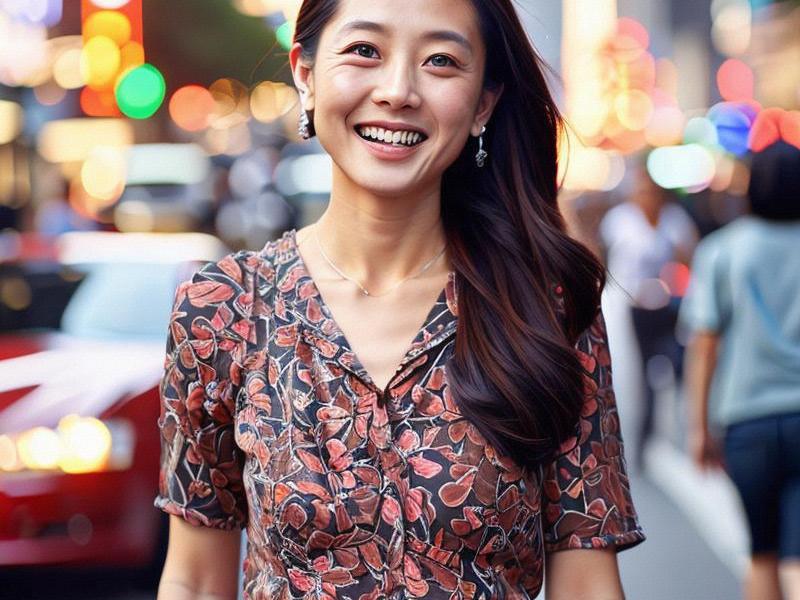Shanghai's Vibrant Cultural Fusion: A Journey Through Tradition and Modernity
⏱ 2025-05-15 01:01 🔖 上海龙凤419
📢0℃

Nestled on the banks of the Huangpu River, Shanghai has long been a melting pot of cultures. Its strategic location at the mouth of the Yangtze River has made it a hub for trade and cultural exchange for centuries. This historical significance is evident in the city's architecture, cuisine, and arts.
The Old French Concession, a historic area in the heart of Shanghai, is a testament to the city's colonial past. Walking through its tree-lined streets, one can admire the charming European-style villas, boutique shops, and cozy cafes. These buildings, with their intricate facades and lush gardens, transport visitors to another era. The concession's preservation efforts have ensured that this slice of history remains intact, offering a glimpse into the lives of Shanghai's early inhabitants.
In contrast, the Pudong district represents Shanghai's modern face. Towering skyscrapers, such as the iconic Oriental Pearl Tower and the Shanghai Tower, dominate the skyline, symbolizing the city's rapid economic growth and technological advancements. Pudong is also home to the Lujiazui Financial District, where the world's top financial institutions have set up their offices. This area is a hub of business activity, with its gleaming glass facades and state-of-the-art infrastructure.
上海贵族宝贝sh1314 Despite its modernization, Shanghai has not forgotten its roots. Traditional Chinese culture continues to thrive in the city, manifesting in various forms such as art, music, and cuisine. The Shanghai Museum, located in People's Square, is a treasure trove of ancient Chinese art. Its extensive collection includes exquisite ceramics, calligraphy, and paintings, showcasing the country's rich artistic heritage. Visitors can immerse themselves in the beauty of these artifacts, gaining a deeper appreciation for China's cultural legacy.
Music also plays a significant role in Shanghai's cultural scene. The city is renowned for its jazz clubs, which attract both local and international musicians. The legendary Peace Hotel Jazz Bar, established in 1929, is a must-visit destination for jazz enthusiasts. Here, one can enjoy live performances by talented musicians, creating an atmosphere of nostalgia and romance. The bar's historic charm, combined with the soulful sounds of jazz, makes it a unique cultural experience.
Culinary traditions are another aspect of Shanghai's culture that deserve attention. The city is famous for its distinctive cuisine, known as "Shanghainese cuisine" or "Hu cai." This culinary style emphasizes fresh ingredients, delicate flavors, and meticulous preparation. Dishes such as xiaolongbao (soup dumplings), shengjianbao (pan-fried buns), and lion's head meatballs are staples of Shanghainese cuisine, beloved by locals and tourists alike.
上海贵人论坛
The art scene in Shanghai is equally vibrant, reflecting the city's dynamic spirit. The city hosts numerous art exhibitions, galleries, and festivals throughout the year. The Power Station of Art, a former power plant turned contemporary art museum, is a prominent venue for art lovers. It features a diverse range of exhibitions, from traditional Chinese art to cutting-edge contemporary works. The museum's industrial architecture, with its massive turbines and high ceilings, adds to the allure of the exhibits.
Shanghai's cultural fusion is not limited to its urban areas. The surrounding regions, such as Suzhou and Hangzhou, offer a glimpse into the traditional Jiangnan culture. Suzhou, known as the "Venice of the East," is famous for its classical gardens, silk production, and Kunqu opera. The Humble Administrator's Garden, a UNESCO World Heritage Site, is a masterpiece of Chinese garden design, featuring meticulously landscaped ponds, rockeries, and pavilions. Visitors can stroll through the garden, immersing themselves in the tranquility and beauty of nature.
上海龙凤419 Hangzhou, on the other hand, is renowned for its West Lake, a picturesque body of water surrounded by lush hills and historic sites. The lake is a popular destination for boating, walking, and photography. The Leifeng Pagoda, a historic tower overlooking the lake, is a symbol of Hangzhou's rich cultural heritage. Visitors can climb the pagoda, enjoying panoramic views of the lake and the surrounding scenery.
The integration of traditional and modern elements in Shanghai's culture is a testament to the city's adaptability and resilience. As a global city, Shanghai has embraced change while preserving its unique identity. This cultural fusion is reflected in its architecture, arts, cuisine, and lifestyle, making it a fascinating place to explore.
The city's government has also played a crucial role in promoting cultural preservation and development. Initiatives such as the Shanghai Cultural Expo and the Shanghai International Film Festival have brought together artists, filmmakers, and cultural enthusiasts from around the world. These events not only showcase Shanghai's cultural achievements but also foster international collaboration and exchange.
In conclusion, Shanghai's vibrant cultural fusion is a harmonious blend of tradition and modernity. The city's historical landmarks, modern skyscrapers, traditional arts, and culinary delights offer a rich and diverse cultural experience. Whether you are strolling through the Old French Concession, marveling at the Pudong skyline, or savoring a plate of xiaolongbao, Shanghai's culture will leave a lasting impression. As a city that bridges the past and the future, Shanghai continues to inspire and captivate visitors from all over the world.
The Shanghai Equilibrium: How China's Most Cosmopolitan Women Balance Tradition and FuturismShanghais Development in Technology InnovationShanghai’s Regional Symphony: Where Metro Core Meets Ancient Waterways in the Yangtze DeltaQuantum Leap: How Shanghai's 30-Minute Metropolitan Circle Is Redefining Urban CivilizationShanghai Reimagined: Where Futurism Meets Heritage in China's Global MetropolisShanghai & Its Satellite Cities: The Engine of China's Most Dynamic Economic Zone从石库门到梧桐树:上海美女的"成长叙事"与城市温度Shanghai, City of DelightThe Algorithmic Playground: How Shanghai's Entertainment Venues Are Redefining Urban Leisure《科创走廊启示录:上海张江与苏州BioBAY的双城实验》

